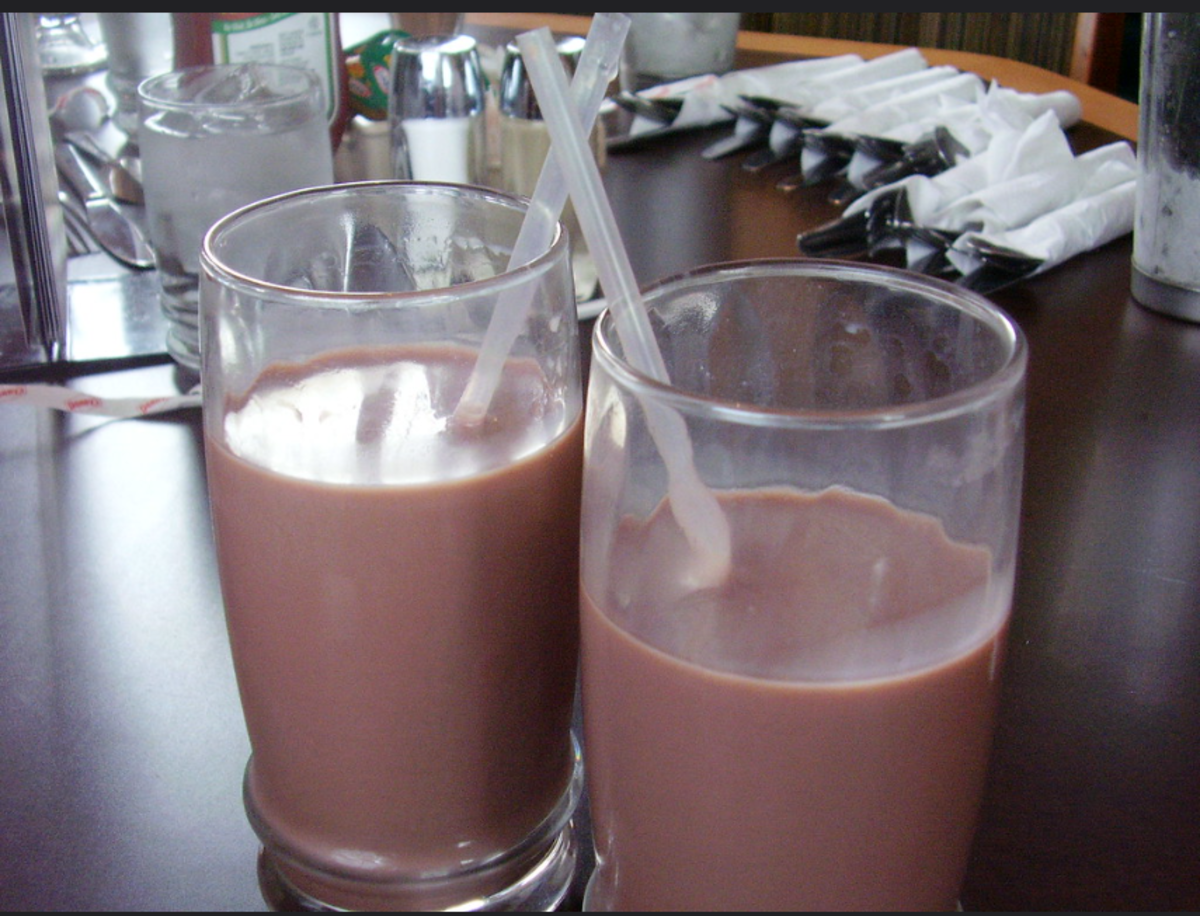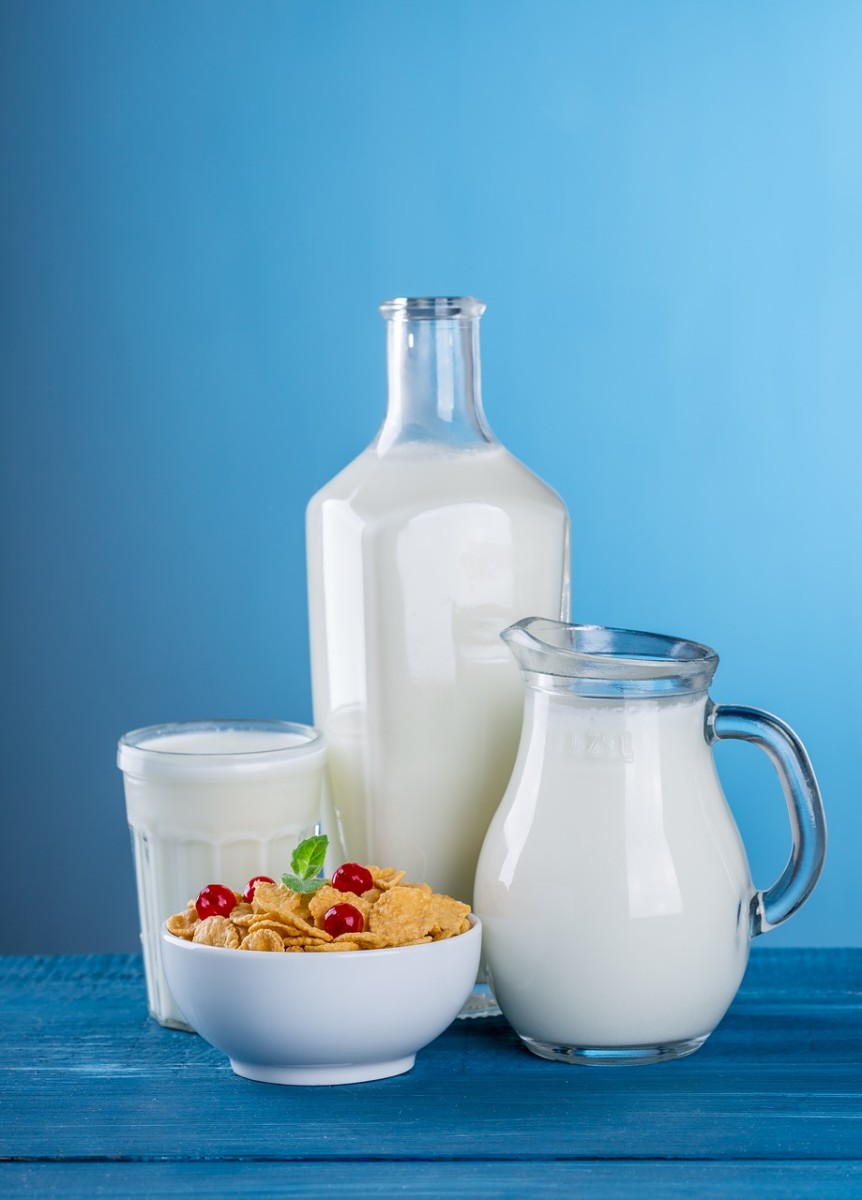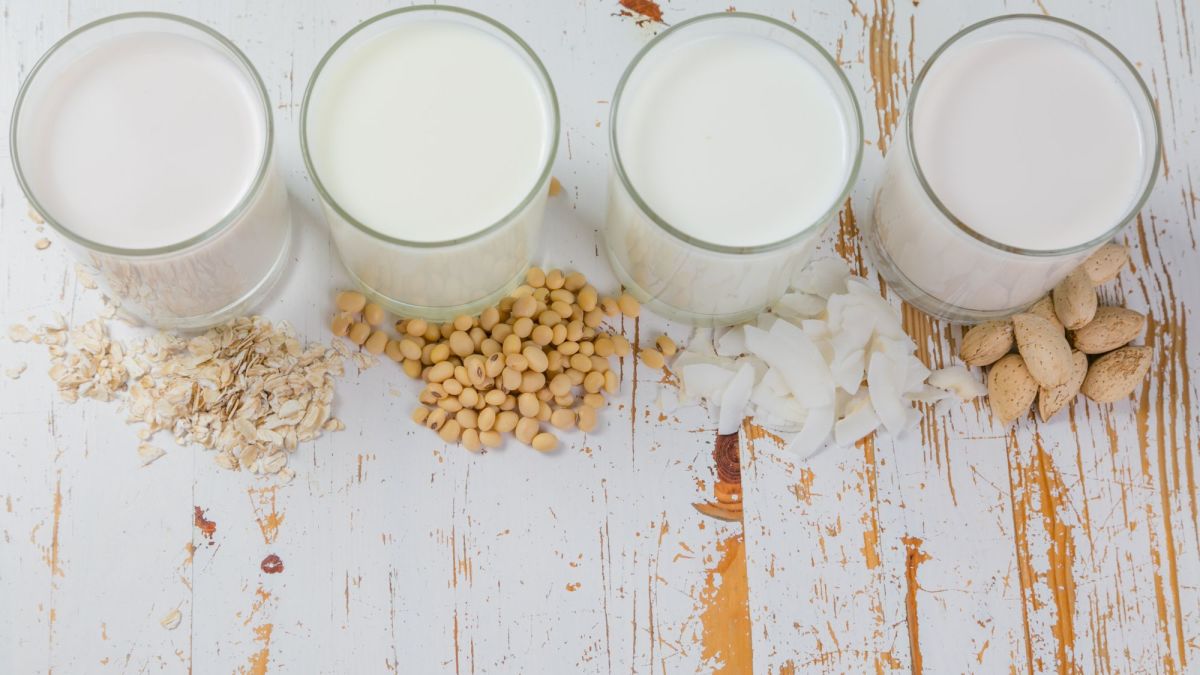The Truth About Dairy: Is It Really Good For You?
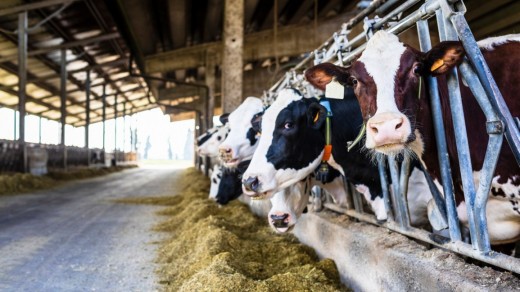
The Truth:
We are always told growing up to drink milk. "It is good for your bones. You need it to grow big and strong!". However, that may be the furthest from the truth. We do not essentially need milk. In fact, about 75% of the population is lactose intolerable. This is because adults do not produce lactase, an enzyme to break down lactose found in dairy products. This is not common among children, as they can break down lactase. As children we are breast fed by our mothers, just as calves do, or any other animal. However, just as calves come to a time in which they do not need milk, humans do too. So, if you experience severe stomach cramps, diarrhea, or vomiting after consuming milk, this could be why.
Milk is meant for calves to drink from their mother. Not for human consumption. Then why do human adults drink milk? It just happens to have a lot of good nutrients such as, calcium and vitamin D. It is easy and fast to drink some milk and receive these nutrients into your body. All we are told is milk has a high amount of calcium and Vitamin D, so it is good for your health. What we are not told is that milk also contains growth hormones, cholesterol, and casein. Also, calcium is only good for you in the right amounts. Did you know that? With all the dairy we consume, unknowingly, our calcium intake is too high to do any good.
The USDA recommends you drink three cups of milk per day. Depending on what kind of milk you drink, a cup of milk has 300 mg of calcium. Adults up to the age of 50 are said to need 1,000 mg of calcium daily. So, let's say you were to drink the three cups a day as you are recommended- that is 900 mg of calcium just in the milk. If you eat a cup of yogurt, that is 450 mg of calcium. Not to mention cheese or butter, that is in everything. If you were to look closely at the foods you eat, you might be surprised by how much of it contains dairy. You are continually adding on to the, already high, 900 mg of calcium you consumed by the three glasses of milk!
In 1997, Dr. Willett conducted a study on 43,000 men which found no link between calcium intake and risk of fractures. Many studies have been conducted since, all coming to the same conclusion- calcium does not make for stronger bones. During Willett's research, he found that men who drink two or more glasses a milk a day are twice as likely to develop prostate cancer than those who do not drink milk. So, what's the point? The point is, calcium does not make your bones stronger as we are lead to believe. There is also the cancer risk... which should scare anybody who drinks milk.
Milk contains harsh hormones such as estrogen, progesterone, and an insulin-like product (IGF-1), all of which speed up the development of tumors. The calcium intake also inhibits Vitamin D from working. So if you are drinking milk for these benefits, you might want to switch to something more beneficial.
Why am I focused calcium right now? Calcium builds strong bones, right? That might actually be more false than you are lead to believe. Calcium actually doesn't contribute to bone health. In fact, if you have too much calcium it is more likely to cause fractures. Calcium is good for you, at certain amounts. 1,000 mg a day is the recommendation, but with all the dairy products we consume, we are putting way more 1,000 mg that into our bodies.
Dairy is also very high in cholesterol. This has been linked to cardiovascular heart disease when consuming a high amount of dairy. That being said, this is only a problem in high consumption. However, there is so much dairy in foods, that you are probably consuming your fair share of cholesterol.
I encourage you to go dairy-free, and just eat a better diet to obtain the same nutrients. That way you are not eating all these product that contain milk and going way over the calcium limit, or having all the harmful hormones put into your system. Dark leafy vegetables are an alternative source to get calcium from. They also do not have the added ingredients such as hormones or casein- which both are linked to cancer.
Dr. Willett came to conclusion that the milk industry is lying to us, stating, "it seems quite clear that dairy is not essential."
Consuming Dairy vs. Quitting Dairy
Pros With Consuming Dairy
| Pros With Quitting Dairy
|
|---|---|
Easy access to nutrients.
| Might lose some weight.
|
Clearer skin.
| |
Lower cholesterol.
| |
Less Bloated
| |
Less stomach issues.
| |
Lower risk of cancer.
|
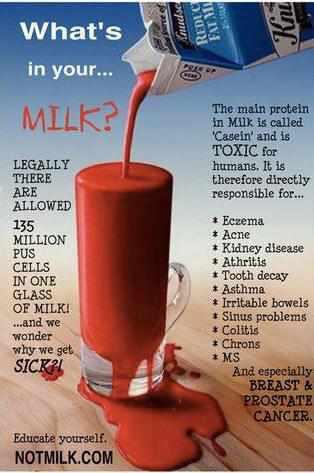
Feeding Us Lies:
If milk is so bad for us, then why is there so much praise for it? This is because of the power that the milk industry has. There is a lot of heavy lobbying done by the big corporate food and agricultural interests. Yes, this includes the $36 billion dollar dairy industry. They want their products to look good, and they have the money to do so.
There are always new dairy research being conducted. Every year there seems to be something new to say about dairy. It is interesting to find out that dairy research is funded by, none other, than dairy industries. This is going to sway the outcome. You are not going to make your own product look bad, especially when it is something everyone consumes everyday.
During the years of 1999-2003, 79 different studies were conducted on dairy products. Of these studies, over one-third were funded by the dairy industry. Of 15 studies, fully funded by the dairy industry, none of them were unfavorable to the corporate interests. Not a single one pointed out the high intake of calcium? Or the growth hormones added to the milk during production? Not a single one had something negative? Seems a little fishy.
The dairy industry funds their own research to keep the everyday person of knowing about the harmful chemicals that go into milk after it comes from the cow. They don't want you to know the dangerous side of dairy. The dairy industry is built on lies to keep you buying their products. Because they know we are all lead to believe that milk is good for your bones.
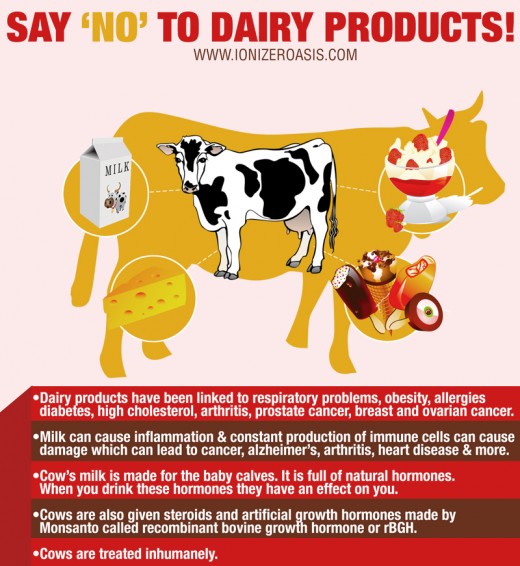
How To Cut Dairy Out Of Your Diet:
Quitting dairy is not as easy as it sounds. However, it is doable. With the many health benefits for quitting, it is worth it. Dairy is in everything. One of my favorite snacks, Beer Nuts, contains dairy. Who knew Beer Nuts would contain milk? Milk is a hidden ingredient in a lot of foods. To cut it out, all you need to do is eat healthier. Like I mentioned before, eat more dark vegetables. These are a good source of calcium. Salmon is a good source of protein, calcium, and vitamin D and also tastes great!
There are plenty of options in order to go dairy-free. Dairy products cause more harm than good. They make you feel gross on top of making you look physically worse. The pros out way the cons when switching to a dairy-free lifestyle. You will feel healthier, overall. I am not saying you have to cut dairy out all together. If you want to, great! Just cut back on dairy products, as they are harmful. Because a single serving of whole milk contains 20% more saturated fat than the recommended amount. There has to be a better option than that, and there is!
If you are considering making the switch, I have included a list of foods to avoid that contain dairy products. I would recommend making the switch as soon as possible. Believe me, I love ice cream just as much as everybody else. However, once you make the switch, just the thought of dairy will make you sick.
They hardest part is ordering food at a restaurant, because they probably use butter to cook with. However, you just have to remember to check with the waiter on the dairy products. When shopping, try to go to an organic food store. They offer dairy-free ice cream and milk. These products are, honestly, just as good as the ones that contain dairy. This lifestyle is worth it, especially when you find out just how bad dairy is for you. I have been dairy free for three months, and I have never felt better. And you can too!
List Of Dairy Products To Avoid:
- Butter
- Cheese
- Ice Cream
- Coffee Creamers
- Cake Mix
- Chewing Gum
- Salad Dressing
- Sherbet
- Whey Products
- Mashed Potatoes
- Donuts
- Chocolate


